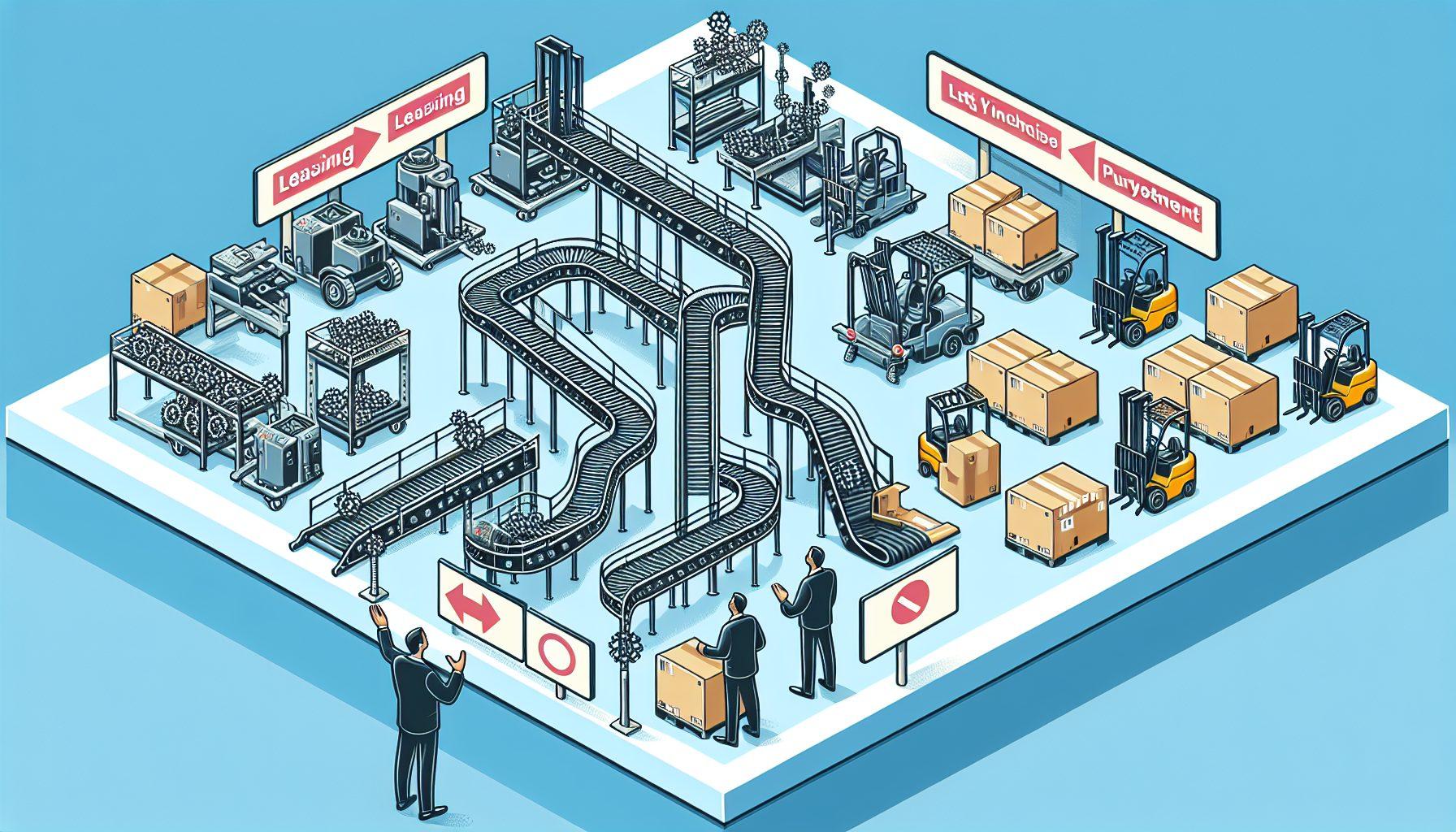When it comes to managing a warehouse, one of the key considerations is the selection of material handling equipment. From forklifts to conveyors, the right equipment can significantly improve productivity and efficiency within the warehouse operations. However, warehouse operators often face the dilemma of whether to lease or buy the material handling equipment. In this article, we will explore the benefits of leasing versus buying material handling equipment and help you make an informed decision for your warehouse optimization needs.
Leasing Material Handling Equipment
Leasing material handling equipment refers to renting the equipment from a leasing company for a specific period. Leasing offers several advantages that make it an attractive option for warehouse operators:
- Flexibility: Leasing allows for more flexibility as you have the option to upgrade or change equipment as per your evolving business needs. This can be particularly beneficial if your warehouse operations are subject to seasonal fluctuations or if you need to accommodate changes in product lines or production volumes.
- Cost Savings: Leasing eliminates the need for a large upfront capital investment. Instead, you can pay regular monthly lease payments, which are often lower than the purchase price of the equipment. This frees up your capital for other essential business expenses or investments.
- Maintenance and Support: When you lease material handling equipment, the leasing company usually takes care of maintenance and repairs. This helps to minimize downtime and ensures that the equipment is always in good working condition. It also saves you from the additional cost and hassle of maintaining a dedicated maintenance team.
- Access to Latest Technology: Leasing allows you to stay up-to-date with the latest advancements in material handling equipment technology. This is especially important in an industry where technology is rapidly evolving and can provide significant improvements in efficiency and productivity.
- Tax Benefits: Leasing material handling equipment can offer tax benefits to your business. Monthly lease payments are generally tax-deductible as an operating expense, reducing your overall tax liability.
Overall, leasing material handling equipment provides flexibility, cost savings, maintenance support, access to the latest technology, and potential tax benefits for warehouse operators. It is a favorable option for those looking to optimize their warehouse operations in a cost-effective and efficient manner.
Buying Material Handling Equipment
On the other hand, buying material handling equipment involves purchasing and owning the equipment outright. While buying requires a larger initial investment, it also comes with its own set of advantages:
- Long-term Investment: Buying material handling equipment is a long-term investment for your warehouse. Once you have paid for the equipment, you own it, and it can be used for as long as it remains functional. This is particularly beneficial if you have predictable and stable warehouse operations where the equipment requirements are unlikely to change significantly over time.
- Customization: When you buy material handling equipment, you have the freedom to customize it to suit your specific requirements. This can include adding specific attachments or modifications that are tailored to your warehouse operations, resulting in enhanced efficiency and productivity.
- No Monthly Payments: Unlike leasing, buying material handling equipment eliminates the need for monthly lease payments. Once the equipment is purchased, you can allocate your funds towards other business expenses, making it a cost-effective option in the long run.
- Asset Value: Buying material handling equipment adds to your business’s assets. If you decide to sell or upgrade the equipment in the future, there is potential to recoup a portion of your initial investment.
- Control: Purchasing equipment gives you full control over its usage and maintenance. You can implement your own maintenance and repair schedule, ensuring that the equipment is well-maintained and meets your specific operational needs.
Buying material handling equipment provides long-term investment, customization options, freedom from monthly lease payments, potential asset value, and greater control over the equipment. It is a suitable choice for warehouse operators with stable operations and specific customization requirements.
Now that we have discussed the benefits of both leasing and buying material handling equipment, it’s important to consider your unique warehouse needs and circumstances. If you are unsure which option is best for your warehouse optimization, consult with industry experts such as HCO Innovations. They specialize in warehouse optimization solutions and can guide you in making the right decision for your business.
In conclusion, choosing between leasing and buying material handling equipment is not a one-size-fits-all decision. It depends on factors such as your business’s financial situation, operational requirements, flexibility needs, and long-term goals. By carefully evaluating these factors and considering the benefits outlined in this article, you can make an informed decision that will enhance safety, productivity, efficiency, and cost-effectiveness within your warehouse operations.

